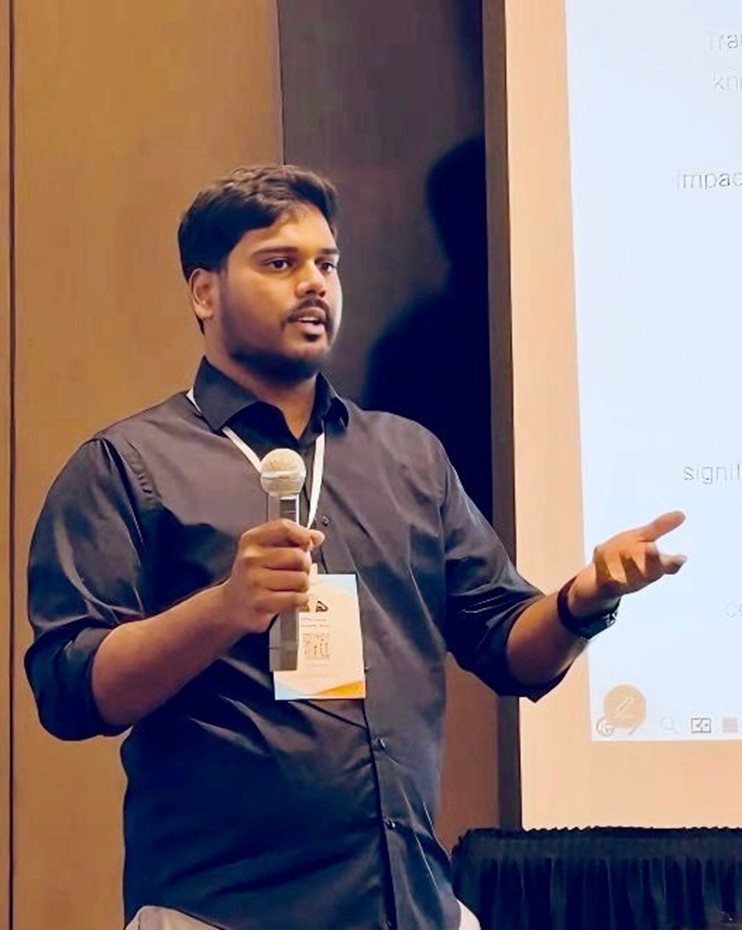
Modern technology features artificial intelligence as a transformative force which enables scientific breakthroughs and transforms industries and human-machine relationships. As this technology continues to advance it has produced significant environmental impacts that have become a major problem.
Bhanu Prakash Reddy Rella used his position as Senior Data Engineer at Meta, delivered a keynote address at the IEEE Cloud Summit 2025 in Washington D.C. He discussed how large AI systems need significant energy and water resources for their training and operation in his presentation titled "Green AI: Paving the Way for Sustainable Technology."
Rella demonstrated how large AI model training requires millions of liters of water and the projected data center electricity consumption will increase to 6% of total electricity usage by 2040. He told the audience that AI represents our greatest technological advancement but we need it to exist both powerfully and sustainably to ensure its long-term future.
Engineering Efficiency Without Sacrificing Capability
Rella applies his professional philosophy to data engineering and cloud computing and AI/ML which combines technical skills with environmental sustainability over his ten-year career. He presented functional strategies to decrease resource usage, storage while preserving system efficiency through his technical expertise.
He explained that knowledge distillation and quantization and pruning techniques enable the streamlining of AI models without affecting their accuracy. The strategies of federated learning and sparse neural networks function as methods to decrease unnecessary computational waste. The emerging hardware technologies of neuromorphic and photonic computing show potential to significantly decrease energy consumption levels.
Rella considers infrastructure design as important as the algorithms themselves. The integration of carbon- and water-aware training schedules within technical planning along with renewable-powered AI facilities forms his recommended approach to environmental embedding from the outset.
Developers as a Force for Sustainability
Sustainable AI development according to Rella extends beyond massive system implementations. He emphasizes that responsible engineering starts during the programming phase and developers hold essential responsibility. Small modifications according to Rella produce major energy savings when deployed in large-scale applications.
He recommends that software teams:
- Software teams should eliminate redundant computations by implementing caching systems which reuse intermediate results.
- Optimization techniques for time and space complexity should be implemented to enhance performance.
- Software teams should utilize vectorized operations combined with batch processing to decrease CPU/GPU request numbers.
- The selection of efficient data structures should aim to reduce memory consumption.
- System performance should be continuously monitored while profiling to detect potential optimization points.
Rella explained that individual optimizations appear minor but they produce substantial reductions in computing time and energy consumption and expenses along with maintained or enhanced output quality when implemented across numerous executions.
Through The Green AI Initiative awareness platform, Rella conducts global advocacy work
Through his technical work Rella has established an international dialogue platform which supports collaboration on AI sustainability.
He advances his outreach through professional publications as well as multiple international speaking engagements and his role as an international hackathon judge. His activities drive changes in both engineering methods and international policy development to keep sustainability at the forefront of global technology advancement.
Proven Impact in Industry
During his time at Walmart Rella worked as Lead Data Engineer to create scalable data pipelines which handled large amounts of information while maintaining energy efficiency. His work proved that large data systems can maintain operational efficiency alongside environmental responsibility.
He continues to use this philosophy at Meta to address some of the world's most complex data challenges and to integrate efficiency and sustainability into project design from inception to deployment.
Academic Leadership in Sustainable AI
Rella's work in the professional field supports his academic research. Currently, he is working on a Doctor of Business Administration degree at Golden Gate University, San Francisco, CA, with a focus on energy-efficient AI. This research combines technical, economic and strategic viewpoints to enable him to contribute to sustainability in AI through his work as an engineer and as a leader who can influence organizational and policy structures.
A Balanced Vision for AI's Future
Rella concluded his IEEE Cloud Summit in Washington D.C. presentation by asking organizations and governments as well as developers to integrate sustainability into all aspects of AI systems including hardware components and data center infrastructure and the programming code that executes on individual machines.
The integration of efficiency and sustainability in AI development from the beginning will guarantee that this technology remains both groundbreaking and responsible in its delivery of progress through resource preservation.
Bhanu Prakash Reddy Rella believes the future of AI depends on more than technological advancement. He believes that systems must be designed to advance technology while maintaining environmental boundaries through a combination of innovation and responsibility.
About Bhanu Prakash Reddy Rella
Bhanu Prakash Reddy Rella works as a Senior Data Engineer at Meta in Menlo Park, CA, and a Doctor of Business Administration (DBA) researcher in energy-efficient AI at Golden Gate University, San Francisco, CA. With over a decade of expertise in AI/ML, data engineering and cloud computing, he has held leadership roles at Walmart and contributed to global technology conferences, academic publications, and sustainability initiatives involving community engagement.
ⓒ 2026 TECHTIMES.com All rights reserved. Do not reproduce without permission.





